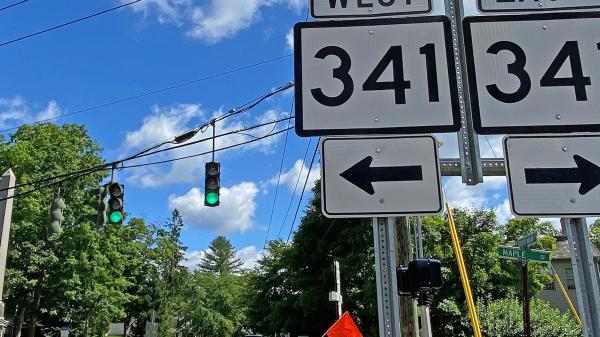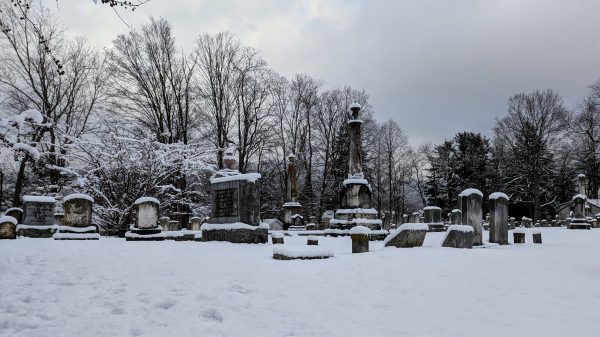KENT – Author Peter Vermilyea clearly loves enlightening local residents on the history of Litchfield County towns. He’s published his third book, “Litchfield County and the Civil War,” and spoke April 4 to Kent residents at the Kent Memorial Library.

Vermilyea has been on a book tour of area towns and in each one he highlights at least one resident from the Civil War period. In Kent, he spoke about Charles Andrews, who lived in Kent and was a young lawyer, age 27, in 1862. He would later go on to become the governor of Connecticut.
“He kept a diary of the comings and goings of Kent and it is absolutely fascinating,” Vermilyea said. He noted that it is part of the Litchfield Historical Society archives collection. Andrews was frequently sick and always complaining and Vermilyea elicited laughter when he suggested taking a look at the diary.
“There’s a little bit where he goes to the doctor asking about the best medicine to fight venereal disease, asking for a friend,” he said.
While his book is far reaching on the impacts of the Civil War in the county, he chose to speak on a microhistory of what was going on in 1862 and how that was representative of what happened in the entire United States at that time.
“I’m thrilled to be here. Anytime I get to speak at a library or a historical society in Region 1 it is really special for me. This has been my professional home for 29 years,” Vermilyea, who is a resident of Litchfield. He is the chairman of the Social Studies department and a teacher at Housatonic Valley Regional High School.
His talk highlighted several odd and unusual aspects of the Civil War on a local level.
“There were 140 men from Litchfield County killed in one hour at Cold Harbor, VA, in 1864,” he said. Up until that point, the county had been relatively “unscathed.” “I really wanted to understand how our communities could deal with that kind of grief. How could they process it and move on?”
His exploration brought him back to the beginning of the war and then to the summer of 1862. Months earlier, President Abraham Lincoln had closed the recruiting offices because the war was going so well.
“By June there were 50,000 men a month dying from disease, battle or being permanently disabled,” Vermilyea said, noting that Lincoln couldn’t admit his mistake and reopen the recruitment due to political consequences. Instead, the northern states stepped in to enlist men for three years. Connecticut had a 7,000-man quota and Litchfield County had a 1,000-man quota. At this point, there’d already been up to four calls for troops to volunteer. It was not easy to find enlistees and the states started offering bounties or bonuses.
“You could get $540 to join the Union army. This was at a time that a non-farm worker made $1 per day. It is a huge amount of money,” he said.
A lack of men stepping up and a need for additional troops ultimately led to empowering states to be able to draft men. They also built in some exemptions and someone who thought he was medically unsuited would be seen by one of three medical examiners. Vermilyea highlighted the three doctors who served as examiners in the county, Dr. Josiah Beckwith in Litchfield, Sidney H. Lyman in Washington and James Welch in Winsted.
Vermilyea said that Litchfield County news that summer in 1862 was not dominated by news about battles, but rather a focus on Beckwith and controversy over his medical exemptions and accusations of impropriety. There were very vague guidelines in place to “probably exempt men who are blind” but nothing else is mentioned. Five months later the US Army published its regulations with specifics.
Once the men had a certificate of medical exemption, they had to bring it to the town’s selectmen, who would vote to accept it. These medical exemptions became public information and newspapers actually published the reasons individuals were excused from service.
In the questions and answers at the end of Vermilyea’s talk, several of those attending asked about the heroes of the war and he explained that the book details much more than he talked about. He chose to highlight this period in 1862 in his talk because he found it so surprising. He also followed up by sending the library a list of the 32 Kent soldiers who were killed in action, died as POWs and died of disease. A total of 166 men served in the war. This was shared with the attendees who registered for the talk.






























